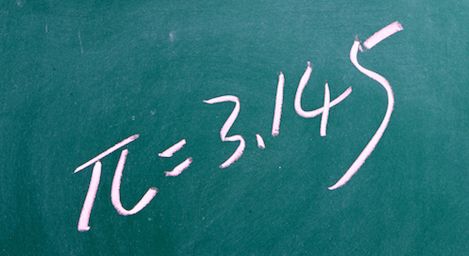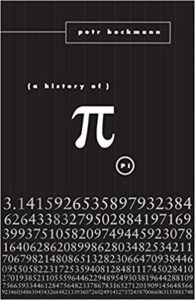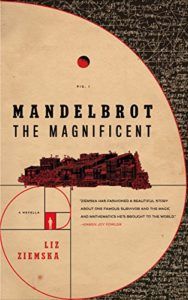
3 Math Books for Pi Day
Happy Pi Day, everyone—the day we celebrate the mathematical constant 𝛑 and its importance in the world of mathematics. I’ll acknowledge right now that, as someone who studied science and has a close relationship with the STEM fields, I definitely have a bias toward math books that I know not everyone necessarily shares. There’s also the fact that my high school actively celebrated Pi Day (which included free pie—get it?—in addition to math-related activities), which gives me an added feeling of nostalgia and warmth for the holiday.
All that being said, I am a firm believer that math (and any subject, really) can be not only accessible but also wildly interesting, to anyone. The key is simply the approach. Here are three books about mathematics written in various styles that should get anyone in the mood to celebrate Pi Day.
 How to Bake Pi by Eugenia Cheng
How to Bake Pi by Eugenia Cheng
Eugenia Cheng is a mathematician specializing in category theory, and she wrote one of the best math books to present the topic to a general audience. Another of Cheng’s passions is baking, so each chapter begins with a simple recipe for a sweet treat, which she then uses as an analogy to explain the mathematics. Beyond just food, Cheng uses various everyday situations to help the reader make real-life connections to the difficult concepts, and her writing is broken up into easily-digestible chunks, making the book incredibly easy and fun to read. So whip up some baked goods (preferably pie, of course) and dig right in to this delightful read. As stated in the prologue of the book, “Whatever you think math is…let go of it now. This is going to be different.”
A History of Pi by Petr Beckmann
by Petr Beckmann
A History of Pi is about exactly what it sounds like, the history of the constant 𝛑. But don’t be fooled by the seemingly-bland title. The author, Petr Beckmann, was a colorful character, to say the least, and that comes out loud and clear in his writing. Beckmann’s anti-authoritarian attitudes seep into what should be a fairly objective retelling of how 𝛑 was calculated, resulting in a unique type of academic text. If you enjoy voices that are biting and unapologetic, this might be the math book for you.
Mandelbrot the Magnificent by Liz Ziemska
by Liz Ziemska
This final pick is a gorgeous historical fiction novella framed as a memoir of the mathematician Benoit Mandelbrot. Mandelbrot and his family flee their home in Warsaw to live in France and hide from the Nazi regime. As a teenager isolated for being different, he escapes into mathematics. However, his genius is both a blessing and a curse, as it makes him stand out among his peers, drawing more attention than is safe. At this point Mandelbrot must steer into the curve and use his talents to protect his family.
Hopefully at least one of these math books will inspire some Pi appreciation in everyone, so here are a couple other Book Riot posts with recommendations to help you celebrate even more (because I’m sure you’ll want to!). Here’s to a wonderful Pi Day for us all!
















